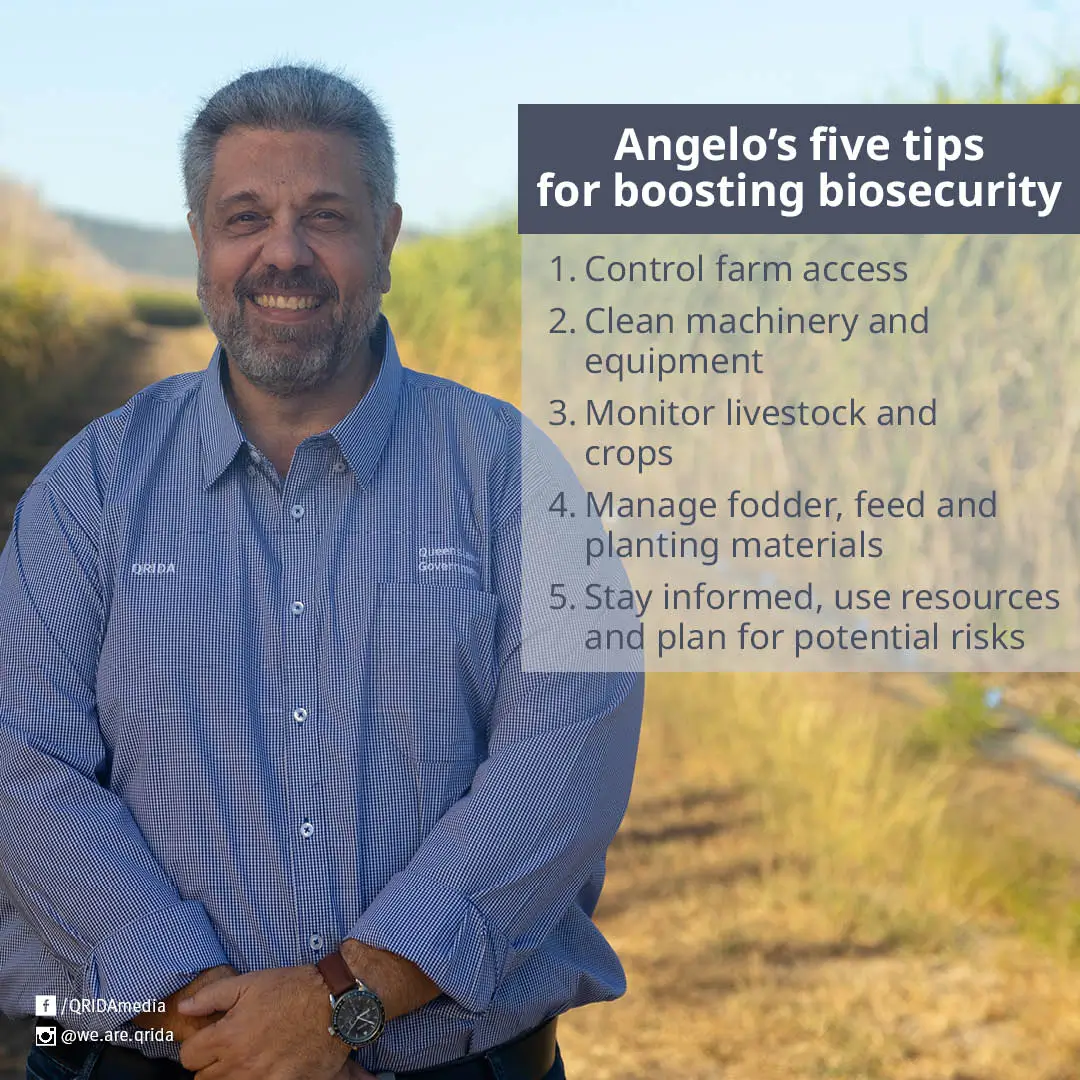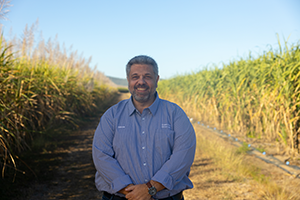22 August 2025
Regional Area Manager for North Queensland, Angelo Rigano's monthly agribusiness tip
Could your farm withstand the next pest, weed or disease outbreak?
If you’re unsure, you might need to consider strengthening your farm’s biosecurity – and make it a priority.
North Queensland has been host to a range of biosecurity risks recently, an example being Biosecurity Queensland confirming equine herpesvirus type 1 (EHV-1) in a horse in Townsville this month.
A range of other risks have recently posed an increasing threat to our wider agricultural industry, including Varroa mite, Blackleg disease, bird flu, and Panama disease. While thankfully they haven’t all crossed our region’s borders, it’s important to prevent the spread while we’re ahead.
Every farm is unique, but there are simple, practical and low-cost practices that most primary producers can carry out to prevent risks and limit the consequences of a biosecurity event.
Here's my five tips to boost your farm's biosecurity:

- Control farm access – Limit entry points, record visitors, and ensure contractors and suppliers follow hygiene protocols before entering and leaving your property.
- Clean down machinery and equipment – Create a designated wash-down area and use it regularly. Pests, weed seeds, and diseases can hitch a ride on vehicles, tools, and harvest equipment.
- Monitor livestock and crops – Early detection is key. Regularly inspect livestock and crops for unusual symptoms, report anything suspicious, and keep vaccination and treatment programs up-to-date.
- Manage fodder, feed, and planting material – Always source materials from reputable suppliers and be cautious if purchasing and transporting hay, seed, or young plants from outside regions.
- Stay informed, use available resources, and plan for potential risks – Use the Department of Primary Industries’ biosecurity fact sheets and industry updates to keep your knowledge current. A good starting point is their current Queensland Biosecurity Strategy here. Develop a farm biosecurity plan and ensure all staff are trained. If you notice any gaps in your plan, chat with me about how a QRIDA Sustainability Loan could help you fund improvements to improve biosecurity on your farm.
By using these five steps to improve your biosecurity, you are not only helping to protect your farm business, but the sustainability of North Queensland's wider agricultural industry.
Interested in more agribusiness tips from Angelo? Producers, subscribe to Angelo's monthly newsletter here, and professional stakeholders, subscribe here.
